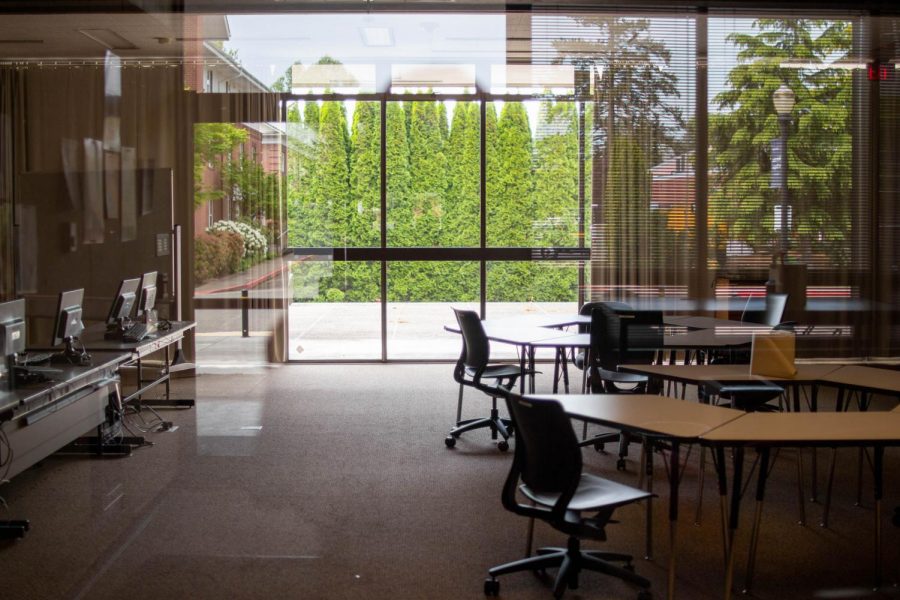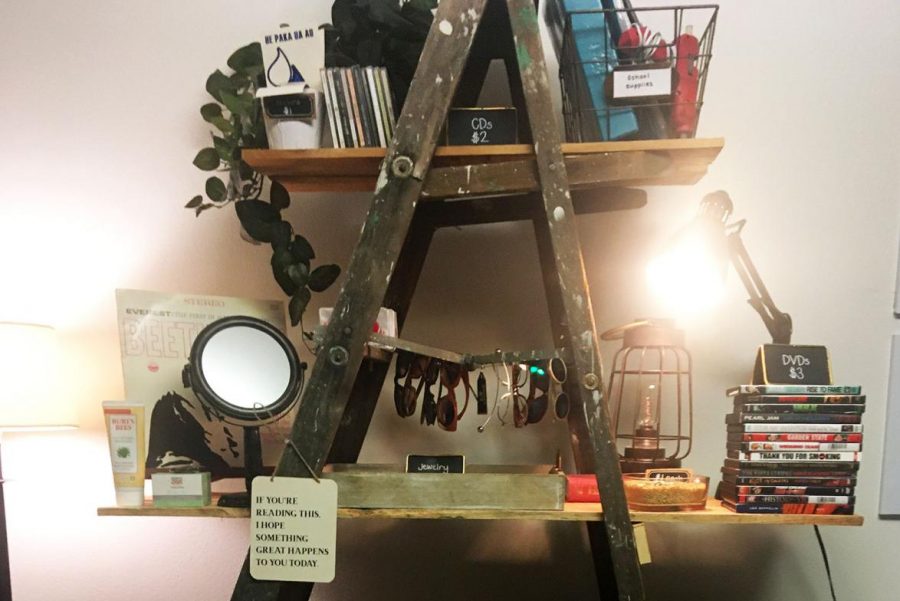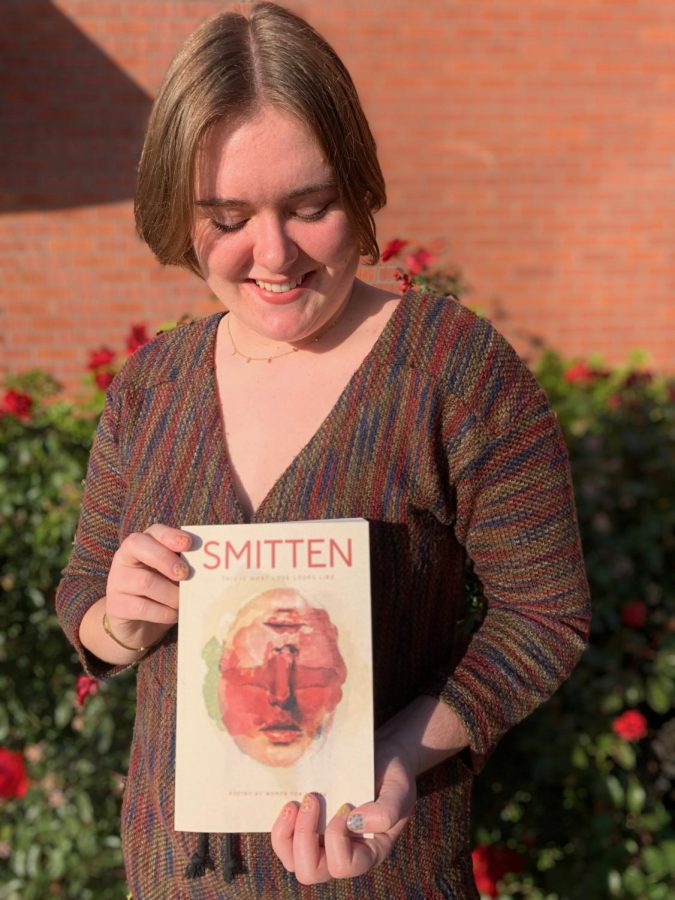
“They [Linfield students] have kind of an upbeat attitude about them. They’re basically people of goodwill,” Lingle said.
Working closely with students in the Department of Mass Communication has been a rewarding experience, he said.
His interactions with students are what he says he will miss the most.
“I just learn so much from students in classes and also just in casual encounters or just observations,” he said. “It’s always been an important part of my life that I’m realizing now I’m not going to have easy access to.”
Under- and overachievers
Lingle said he has learned not only from overachievers but undearchievers as well.
“I’ve learned that enthusiasm and hard work can take you a long way and that many students, if the right conditions are in place, will be overachievers. They will surprise me by what they will be able to do or the growth as students that they have from course to course year to year,” he said.
However, Lingle also said that learning to work effectively with underachieving students has been an interesting experience.
“If I’m able to reach an underachieving student, and we can actually get something done, they can begin to open up a little bit,” he said. “They have a sort of right not to achieve, and I think that I’ve learned respect for those who could do so much better than they do. Finding the right way to reach them so that they produce a little bit has really been great fun. Some of my favorite students would fall into that underachiever category.”
‘Good writing and good thinking’
Rather than having a set ideology on how to teach, Lingle said he prefers to use methods of effective teaching he has experienced.
“I suppose my teaching is modeled on some of the best teaching that I encountered as a student,” he said. “What I like to do is work with students to help them improve their skills — of course writing skills are very important here but also their thinking skills, or cognitive skills — their ability to frame an argument. So I concentrate quite a bit both on good writing and on good thinking.”
After teaching large classes at public universities, Lingle said he enjoys Linfield’s small class sizes.
“I best like to work with a small group of students, but I’ve also had great times in classes of 25 or so and especially classes that draw from other majors than just mass communication, so that I’ve really got to know students from other disciplines who bring different perspectives into the classroom,” he said.
Working across different fields of study has been an exciting aspect at Linfield, Lingle said.
“When I was at University of Oregon, I was strictly with journalism people; those were the only professors I knew and all of my interactions had to do with mass communication, he said. “I come to Linfield and I start having interesting conversations with people from political science, psychology, English and biology. That was really stimulating to me. I think that’s one of the things a college like Linfield offers — your ability to, intellectually at least, reach across disciplines.”
Building a newspaper
“The newspaper was in a very sad state when I came here. It was to the point at which, if reporters didn’t turn their assignments in, the newspaper would just leave blank spaces where the stories would be,” Lingle said. “It took me a while to begin to have an impact on the newspaper, but that happened in my second year.”
He said a strong student effort helped push the newspaper forward and eventually establish its indepedence.
“Fortunately, in the second year, a good student stepped up to become editor of the newspaper, and we worked pretty closely together — much more closely than I work with students now because the paper needed it,” he said. “Within three or four years, we were a pretty good student newspaper.”
Although The Linfield Review has had its up-and-down times since then, Lingle said that it has increasingly resembled a real newspaper and has gradually been able to establish itself more as an independent entity, allowing him to pull away in his role as an adviser.
“There have been certain matters that I have had to advise on over the years, but I really am interested in having the students get as complete an experience of being responsible for the paper as they can,” he said.
Lenient administrations have been helpful to the production of the paper, Lingle said.
“We’re very fortunate to have had a string of presidents, since I’ve been here, who have not exercised … their authority to meddle in the workings of the student newspaper,” he said. “I’ve been really appreciative of the kind of negative support from the administration — that is, they support the paper by recognizing its independence and the importance of the experience for students working on an independent publication.”
From Illinois to Oregon
“I came [to Linfield] in 1980,” he said.
Lingle began teaching at Southern Illinois University, where he majored in English and philosophy as an undergraduate. He then taught, both during and after completing graduate work, at the University of Oregon. He also taught courses at Oregon State University.
Lingle said that although he loved his time at University of Oregon, he left because of the difficulty in becoming tenured at a school where he earned his degree.
“I came to Linfield as what was kind of a career move,” Lingle said. “I had never set foot on a private, liberal arts college campus before, so it was quite a shock to me.”
He described a number of factors in his decision to move from Illinois.
“This was a time in which people of my generation were very mobile. I had already been a journalist, but … there was almost chaos in the culture because of the Vietnam War and of course I had been involved in some of the protests,” he said. “Moving away from things — the hot spots back there — seemed like a good thing to do. Of course, I moved right into a hotbed of protest activity in Eugene, but I didn’t know that at the time.”
The life of a freelancer
Lingle first became involved in journalism while working for the alternative student newspaper at Southern Illinois University. He wrote theater reviews but gradually reviewed more and more films as he lost interest in theater, he said.
“That really got me started in journalism, and that’s the place I think I loved most in journalism too: writing criticism of film and a little bit of theater,” he said.
After graduating from Southern Illinois, Lingle became more involved in freelancing during graduate school in Eugene.
“I loved being a freelance journalist. It’s really challenging,” he said. “But I also was married and had a young child, and the salary was not very predictable then if you were a freelancer — and still isn’t. It’s good for a single person, but not so much for someone who has additional responsibilities.”
Freelancing involves intensive work as it is often difficult to have articles published, Lingle explained.
“For example, if you’re walking across campus, you have to get five ideas for an article because three of those are not going to pan out and one of those you’re going to pitch to someone and it’s not going to go anywhere, so you may be left with one you can work on,” he said. “You also need to know how to work at different stages of an article. I wrote complete articles sometimes that then didn’t get published which is again typical for a freelancer.”
Film fan
Lingle has been a big film buff all of his life and has brought his experience in film studies and criticism with him to Linfield by teaching various courses on the subjects.
“My interest began as a small boy, and it was because my family came late to television. We were late adopters,” he said. “My parents liked movies, and my siblings liked movies, and so I got to see lots and lots of films when I was young. Many of them I didn’t understand, but were glorious to me even though I didn’t really know what was going on.”
Some of Lingle’s favorite films are those directed by Alfred Hitchcock.
“I’ve spent a lot of time studying the films of Alfred Hitchcock and also his career,” he said. “Certainly my favorite Hitchcock films are ‘Shadow of a Doubt’ … and then of course ‘Vertigo,’ which is considered his greatest film. I agree with the general consensus; I think that’s a fabulous film.”
He said he also enjoys Orson Welles “Touch of Evil” and the works of Japanese filmmaker Kenji Mizoguchi, who he said was probably greater than any American filmmaker.
Beyond Linfield
Lingle said mounting health problems (none of them serious) and the difficulty of keeping up with the rapidly changing field of mass communication are two of the main factors in his decision to retire.
“With all the different media interacting these days, it’s something that I’m fascinated with, but something that I don’t really want to expend the energy to keep up with,” he said.
After retiring, Lingle said he plans to travel, go to baseball games, solve New York Times crossword puzzles and maybe get back into fishing and gardening vegetables.
Two of his favorite hobbies are cooking and dining, especially his favorite cuisines, Japanese and Italian, of course, he loves films.
“Films are both a vocation and a hobby with me,” he said. “So that takes up a lot of my free time although it also contributes to my understanding of film.”
To aspiring journalists
Lingle leaves Linfield with a final message of encouragement to students with journalistic as pirations.
“Journalists have a great responsibility in our political system and in our culture, and it’s a responsibility that I think we don’t often think about. But what aspiring journalists will do is absolutely crucial to the preservation of democracy and the preservation of our basic freedoms,” Lingle said. “I like beginning journalists who are writing about the sewer levy in a small town for a weekly newspaper to understand that the job they’re doing is a very big one and a very important one.”
by Braden Smith/Managing editor
Braden Smith can be reached at [email protected].







